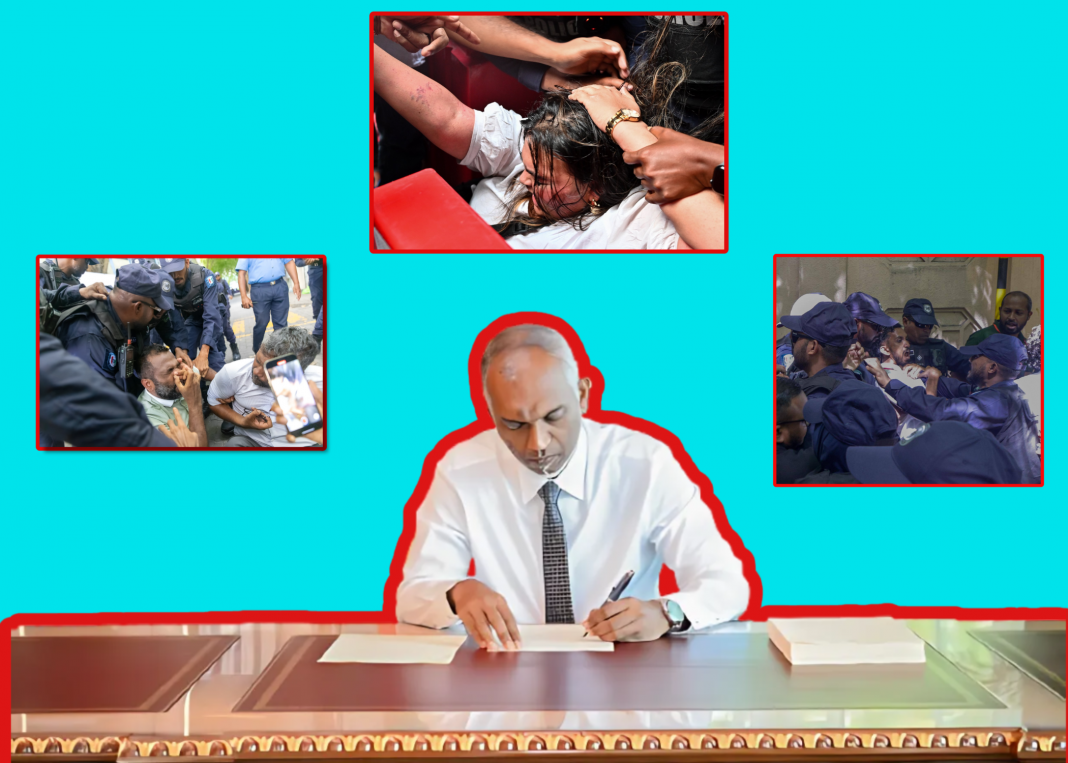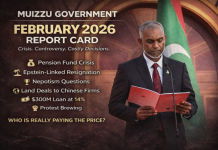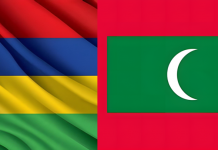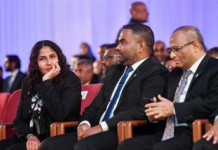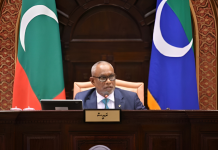The Maldives Journalists Association (MJA) strongly condemned a new media law passed on Thursday, calling it “unconstitutional” and a severe blow to press freedom and free speech in the Maldives. The law replaces the existing self-regulatory media system with a government-controlled Maldives Media and Broadcasting Commission (MMBC), raising widespread fears of censorship and media suppression.
On August 18, independent lawmaker Abdul Hannan Aboobakr, aligned with the government, introduced a bill to dissolve the Maldives Media Council (MMC) and the Maldives Broadcasting Commission (BroadCom). The bill establishes a single seven-member MMBC to regulate all media in the country. The People’s National Congress (PNC), the ruling party, openly backed the bill, with Deputy Speaker Ahmed Nazim admitting his role in its drafting.
Despite protests inside and outside Parliament, the PNC leveraged its supermajority to pass the bill on Tuesday with a 60-1 vote in an extraordinary session. Several opposition Maldivian Democratic Party (MDP) members were forcibly removed from Parliament during the protests. On Thursday morning, President Mohamed Muizzu signed the bill into law, putting it into immediate effect.
The MJA, representing over 150 journalists, called the decision “extremely disheartening” and labeled the law “unconstitutional.” In a statement, they declared, “This law is a serious blow to press freedom and freedom of expression in the Maldives. It’s a clear attempt by the government to control the media.” The MJA warned that the MMBC, heavily influenced by the government, holds sweeping powers to block websites, revoke broadcasting licenses, and impose harsh penalties without due process, creating an environment of fear for journalists.
The new law undermines press freedom in several critical ways:
- Government Control Over Media: The MMBC’s members are either appointed or removable by the PNC-dominated Parliament, giving the government significant influence over media regulation. This risks biased enforcement, where outlets critical of the government could face unfair punishment.
- Broad and Vague Powers: The MMBC can fine, suspend, or shut down news outlets for content deemed contrary to religious norms, national security, public order, or public health. The vague wording allows subjective interpretation, enabling the government to silence dissenting voices without clear justification.
- Chilling Effect on Journalism: The threat of severe sanctions, including website bans and license revocations, without due process encourages self-censorship. Journalists may avoid investigative reporting or critical commentary to escape punishment, stifling open debate.
- Erosion of Free Expression: By requiring media to “uphold the legitimate government” and avoid broadly defined content that affects “public order” or “national security,” the law restricts freedom of expression. This weakens the media’s role as a democratic watchdog and limits public discourse on critical issues.
“We will not be intimidated,” the MJA stated. “We stand in defiance of this law and will work with journalists and civil society to challenge this unconstitutional legislation through all necessary avenues.”Under the new law, the MMBC consists of three members appointed by Parliament and four elected by registered media outlets.
However, Parliament, controlled by the PNC, can dismiss any member, including those elected by the media, and appoint the commission’s chairperson. The law also mandates media to support the government, protect national security, respect individuals’ privacy, and distinguish facts from opinions.
The original bill was even more restrictive, allowing the President to appoint three commission members and the chairperson and permitting sanctions for social media posts up to a year old. After pushback from local and international media groups, some provisions were amended during a committee review.Journalists view the law as a direct attack on press freedom and a crackdown on dissent.
The PNC administration, however, claims it protects citizens from defamation, disinformation, and misinformation while promoting media accountability.
International organizations, including the International Federation of Journalists (IFJ), the Committee to Protect Journalists (CPJ), Reporters Without Borders (RSF), and the US Embassy in Male’, have voiced strong concerns about the law’s impact on press freedom and democratic principles in the Maldives. The global outcry underscores the law’s threat to the Maldives’ democratic framework, with fears it will suppress independent journalism and weaken free speech.

